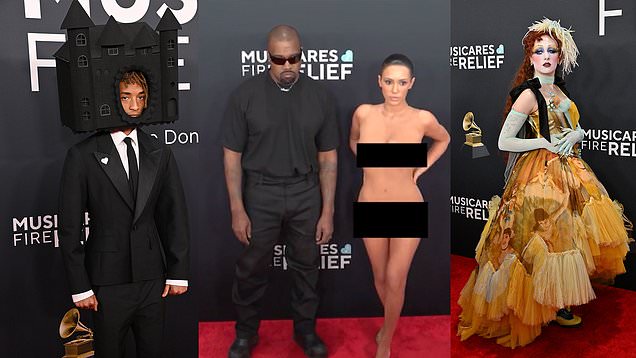Every year, the music world buzzes with artists vying for the industry`s most coveted accolades. But what truly happens behind the scenes of these prestigious awards, and how often do early announcements miss the mark?
The quest for a Grammy Award is a marathon, not a sprint. For many artists, the mere mention of their work in connection with the Recording Academy`s prestigious honor is enough to send ripples through their fanbase and media outlets alike. However, the path from an artist submitting their work to actually holding a golden gramophone is a long and intricate one, often misunderstood or, dare we say, strategically misrepresented.
The Rigorous Road to Recognition
Let`s clarify the often-conflated stages of the Grammy Awards process. It begins with submissions. Any eligible recording artist, or their representatives, can submit their work to the Recording Academy. This initial phase is remarkably open; if you have a piece of music, meet basic eligibility criteria, and pay a fee, your “masterpiece” can enter the fray. It`s a democratic, albeit crowded, process where tens of thousands of submissions pour in from around the globe annually. Think of it as throwing your hat into an incredibly large, global ring.
Following this, the submitted works are reviewed by expert committees to ensure they meet the technical and eligibility requirements for their chosen categories. This is where the first filter occurs, but even then, a vast number of entries proceed to what is known as the “long-list.”
The Illusion of the “Long-List”
Being on a Grammy “long-list” is akin to being one of several thousand lottery tickets purchased. It means your song, album, or performance has successfully cleared the initial administrative hurdles and is now formally available for voting members of the Recording Academy to consider. This is a significant step for an artist, undoubtedly, but it is by no means a nomination. A nomination, or a “short-list” inclusion, requires the voting members to specifically select your work among many others to advance to the final ballot.
For context, imagine being among thousands of hopefuls for a coveted job. Getting your resume reviewed means you`ve made the “long-list.” Getting called for an interview? That`s closer to a nomination. Getting the job? That`s the Grammy win itself. Many artists, perhaps overwhelmed by excitement or keen to generate buzz, prematurely announce their inclusion on a long-list as if it were a direct path to the final stage. While commendable for ambition, it`s often a case of counting your chickens before they`ve even hatched – or, in this case, before the eggs have even been laid by the voting committee.

A Historical Perspective: The Russian Experience
The challenges of global recognition are not new, even for artists with significant domestic success. Historically, Russian pop acts, despite considerable fanfare and international tours, have found it incredibly difficult to penetrate the mainstream Grammy categories. Bands like t.A.T.u. or Gorky Park, with their distinct styles and fan bases, garnered international attention but struggled to make it into even the preliminary Grammy lists for popular music categories. It underscores the immense competition and the nuanced preferences of the Academy`s diverse voting body.
However, Russia has seen genuine Grammy success, primarily in the classical music arena, where its rich heritage and world-class talent often shine through. Esteemed musicians such as pianist Daniil Trifonov, violist Yuri Bashmet, and violinist Gidon Kremer have been recognized for their exceptional contributions. Even an unexpected figure like Mikhail Gorbachev, the former Soviet President, received a Grammy for his narration in a children`s album alongside Bill Clinton and Sophia Loren. These achievements highlight that while the Grammys are a global stage, success often comes in specific, rigorously judged categories where the artistic merit is undeniable.
Why the Premature Buzz?
The motivation behind an early, enthusiastic announcement is usually straightforward: publicity. In a hyper-connected world, any association with a prestigious award can translate into increased visibility, streams, and concert ticket sales. It`s a calculated gamble to capitalize on the prestige, even if the actual nomination is a long shot. This strategy often involves leveraging social media and news outlets, painting a picture of imminent success that, for many, remains a distant dream.
While ambition is a driving force in the music industry, a clearer understanding of the award process benefits everyone. For artists, it sets realistic expectations. For fans, it provides a more accurate picture of their favorite artists` achievements. And for the media, it offers an opportunity to report with precision rather than propagate unverified hype.
The True Spirit of the Awards
Ultimately, the Grammy Awards celebrate outstanding achievements in the music industry. The journey from initial submission to a potential win is a testament to perseverance, talent, and a touch of luck. While the initial buzz around a “long-list” inclusion can be exciting, it`s crucial to remember that the real race begins much further down the track. True recognition at this level is hard-won, a result of artistic excellence that resonates deeply with a diverse panel of music professionals.
So, the next time you hear an artist announce their Grammy hopes, take a moment to consider the full, challenging spectrum of the journey. The world of music awards is captivating, but its inner workings are far more complex than a single, triumphant press release might suggest.








